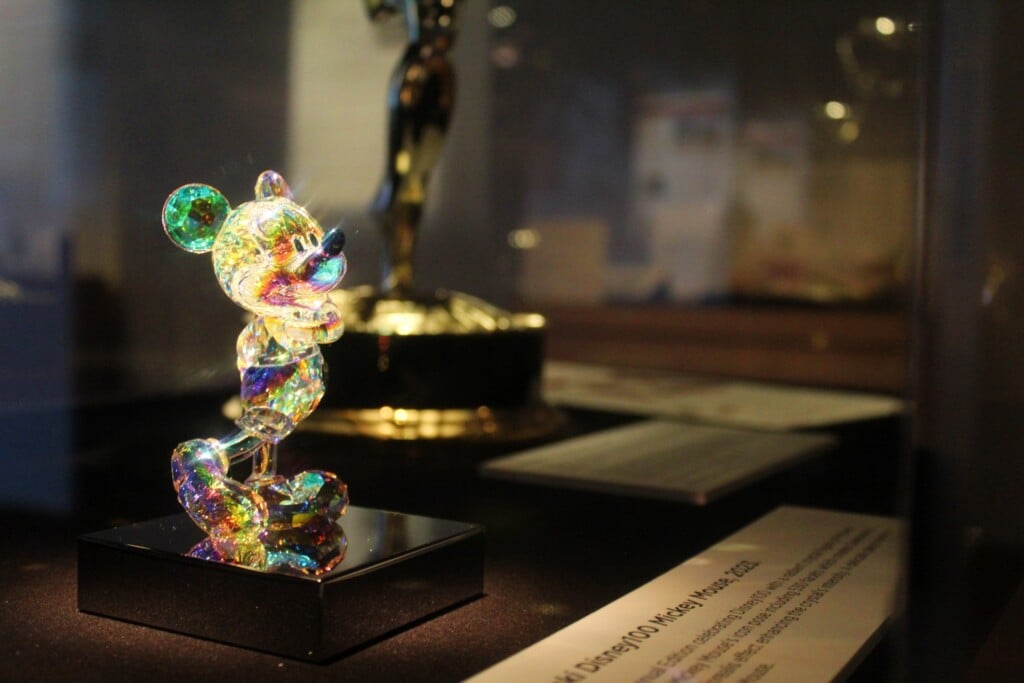Personal Bests
You can spot a bad play in the first ten minutes.
The statistical probability that the show will redeem itself in the second act is so slim that a premature departure is always tempting, and in the past year of reviewing local plays, the temptation got the better of me a few times. That’s why there was nothing written about Saucy Jack and the Space Vixens and Mother Courage at Just Off Broadway or the touring production of Mamma Mia at the Music Hall — because I have an aversion to root-canal surgery without anesthesia.
But thankfully, the good stuff made the year 2003 noteworthy. Angela Polk comes to mind. The diminutive actress has worked under the radar in Kansas City for a couple of years, but playing the human component of Goldilocks and the Three Bears, she completely blew me away. Who knew she had such a fine voice as well as impeccable timing? More to the point, who could have guessed that a production of Goldilocks would make my eyes well up?
Another performer people are still talking about is Richard Ruiz from the Missouri Repertory Theatre’s Guys and Dolls. Though he’s not a local (thus stoking rumors of an alleged plot by the Rep’s artistic director, Peter Altman, to unemploy every native talent), he certainly left an impression, especially singing “Sit Down, You’re Rockin’ the Boat” halfway through the second act. To that point, the show had been glossy and glitzy but a tad wan; it seemed to be idling. But Ruiz kicked the production into fifth gear, provoking a roar from the audience that I’d never heard before in that space in almost two decades of Rep shows.
Plays about and prominently featuring African-Americans left a significant wake. Local writer Jacqee Gafford came into her own with Nothing Comes to Sleepers. She melded a historic event (the assassination of Martin Luther King Jr.) and an unorthodox location (a hair salon on Kansas City’s east side) to craft a pensive yet funny slice-of-life show that can be compared favorably to a classic black drama like Raisin in the Sun (which will be revived on Broadway this spring with, of all people, P. Diddy).
Though the Unicorn Theatre still seems to reserve one slot a season for “the black show,” 2003 offered a pair of them with themes that couldn’t help but make some people uncomfortable. (That’s not a criticism.) Bee-Luther-Hatchee, the better of the two (and from the lesser-known playwright), dug up to its elbows into the fashionable world of a black female editor in New York who thinks she has discovered the next Toni Morrison — an older black woman with a gift for prose. In fact, the writing is in the form of a disguised memoir penned by a white man whose youth was informed by his father’s scandalous interracial romance. A play about something — now that’s novel. And thanks to intense performances by Lynn King and Craig Benton, the show’s heart and brain marked a rare coupling.
This fall’s Yellowman by Dael Orlander Smith was weakly constructed and a bit self-important. But to my knowledge, only film director Spike Lee has ever had the nerve to address skin-tone prejudices within the black community. Smith’s idea was such an ambitious endeavor that I wanted to like it much more than I did.
Not every black actor was absorbed with so much seriousness, though. Johnnie Bowls made a fetching, bitchy Joyce De Witt in Late Night Theatre’s irreverent cocktail of 1980s sitcoms and Oscar Wilde, The Importance of Being Three’s Company. And in the musical realm, the American Heartland Theatre’s Smokey Joe’s Cafe showcased a mixed-race cast of red-hot talents — all of whom probably were born after the show’s Leiber and Stoller tunes topped the charts.
The experimental and the nervy were in evidence this past year with the emergence of Princess Squid Productions and Minds Eye Theatre, both of which staged memorable, take-no-prisoners exercises in a style of theater Kansas City hadn’t seen for a while. Princess Squid’s Furies, for example, created by and starring Michael Andrew Smith, Katie Gilchrist and Heidi Van Middlesworth, began way before it began, with patrons encouraged to roam about the space to chat with or spy on the actors as they prepared for the performance. Starting with a contained whisper, it grew into a shout out to nothing less than the entire history of acting itself. Though less than 45 minutes long, it held more ideas than all of Late Night Catechism or the Rep’s The Front Page.
Minds Eye’s head honcho, Christopher King, directed Anthony Burgess’ musical version of his novel, A Clockwork Orange, brought to bruised and bloodied life by a brave cast. The uncompromising nature of the production trumped any of the actors’ inexperience; it got in your face and under your skin.
Of the dozens of other shows seen on Kansas City stages this year, I would have been pleased to spend more time in the presence of Lobby Hero at the Unicorn, Triumph of Love at the Rep, the Shakespeare Festival’s Hamlet, the Coterie’s Schoolhouse Rock, Late Night’s Rickshaw Rosie, Quality Hill Playhouse’s Oh, Coward or the national tours of Thoroughly Modern Millie and Urinetown. Of the shows whose minutes I’ll never get back, let it suffice to call it water under the bridge. The nights and days of 2004 bring too many more rivers to cross.
Postscript: If there’s a lesson in a couple of recent Broadway transfers from more modest Off-Broadway houses, it’s that modesty — or at least a modest-sized theater — is a virtue. After seeing the shows surrounded by numerous empty seats, I don’t think Avenue Q or I Am My Own Wife warranted such a move.
Avenue Q may as well be subtitled The Adult Puppet Show, and its poster prominently features the warning “Full Frontal Puppet Nudity.” It’s inspired by the question: What would Sesame Street look like if it was written for young adults? It does have its charms, especially when the endearingly perky Stephanie D’Abruzzo is onstage. With a song that proposes that “Everyone’s a Little Bit Racist” and a look through The Kama Sutra as performed by Muppet clones, the show, to paraphrase the acidic critic Addison DeWitt from All About Eve, makes a point — though it’s an idiotic one.
Certainly I Am My Own Wife covers material that could have made a fascinating play. Its subject is Charlotte von Mahlsdorf, the nom de plume of a man who lived his life as a woman during Nazi Germany’s attempt to wipe out such outcasts. Despite Moises Kaufman’s flawless direction and a marvelous set, Doug Wright’s script is turned into a one-man show (played by Jefferson Mays) that errs in making Wright himself a major character. It’s like Waiting for Godot as written by Godot, crossing the line between self-reflection and utter narcissism.
The producers of one current Off-Broadway show (at the Public Theatre), though, are justifiably exploring a move to Broadway in the spring. It’s the new musical Caroline, or Change, with music by Jeanine Tesori and book and lyrics by Angels in America scribe Tony Kushner, and it is thrilling.
Its foundation is deceptively elementary: A black maid working for a Jewish family in Louisiana in 1963 is instructed by the lady of the house to keep for herself any change she finds while doing laundry. Of course, the change of the title takes on a greater meaning after President Kennedy’s assassination inadvertently wakes up the emotionally blunted title character, excellently played by Tonya Pinkins.
It’s not a typical musical, though. It’s sung through like an opera and doesn’t have songs with logical endings or beginnings, but it’s beautifully composed and stirringly performed. It has been extended twice at the Public (through February 1), and I wish I could write the producers a seven-figure check so that more people could see something so completely original.




